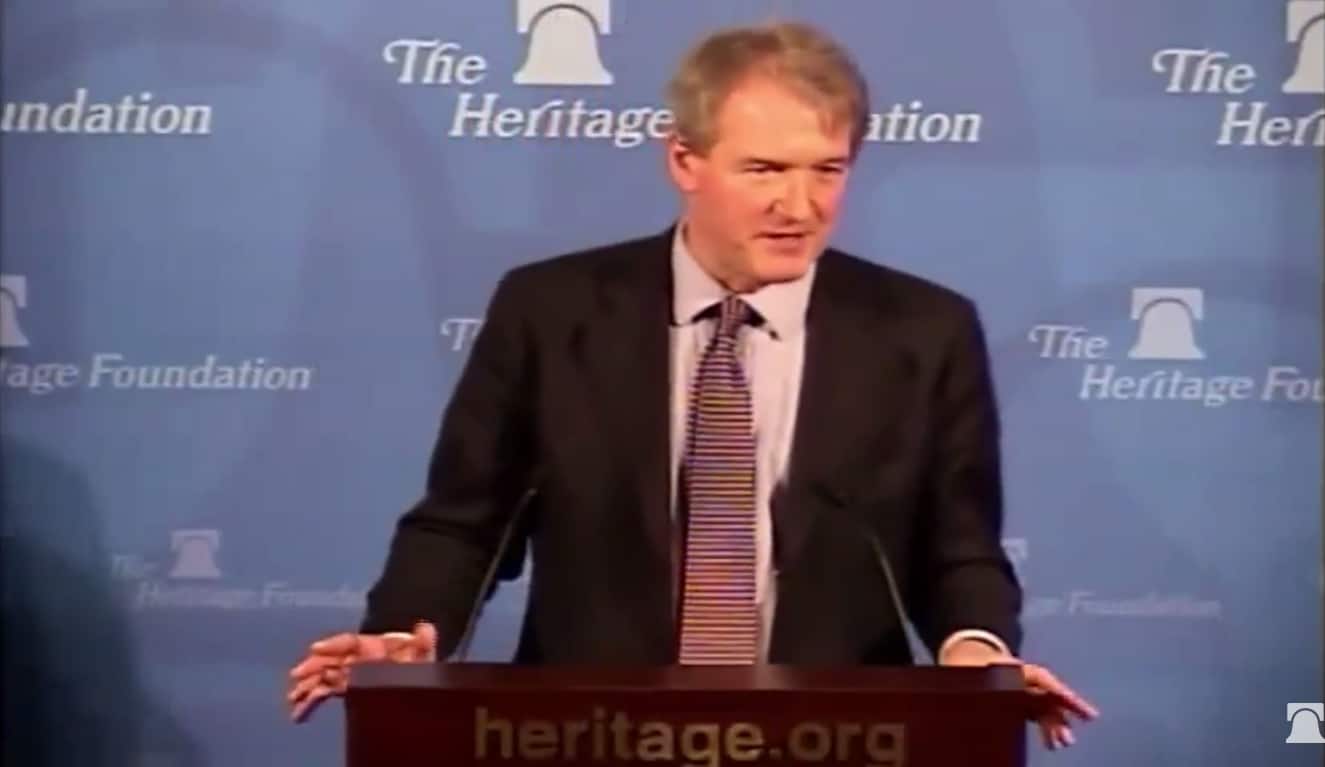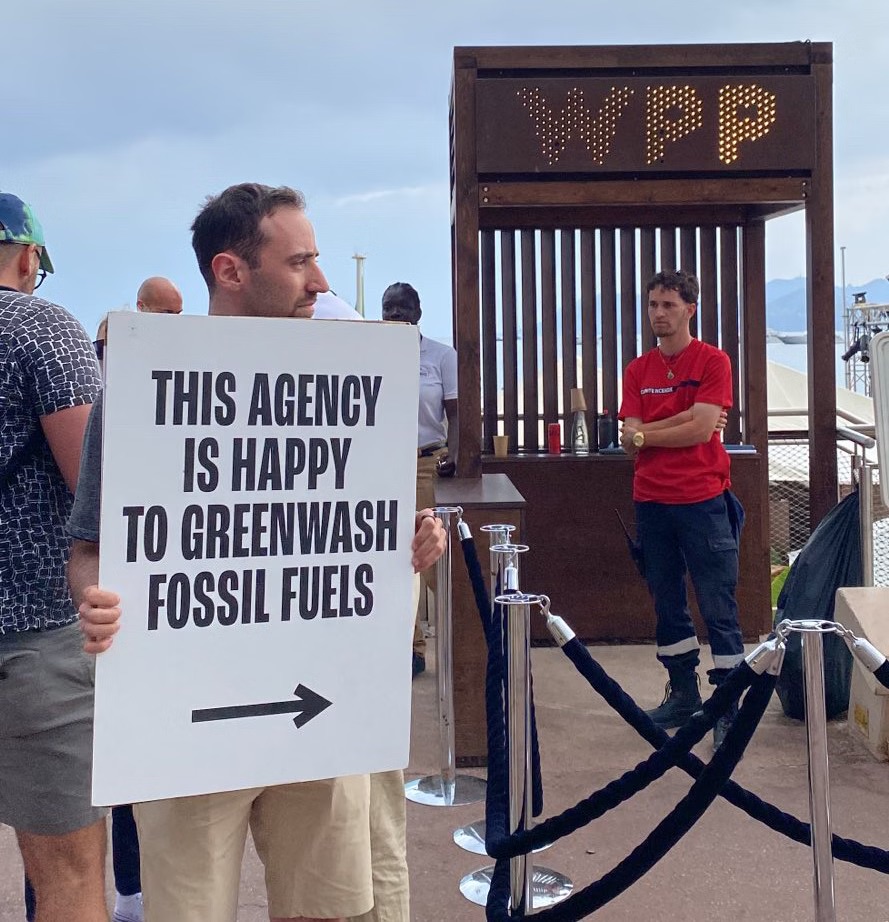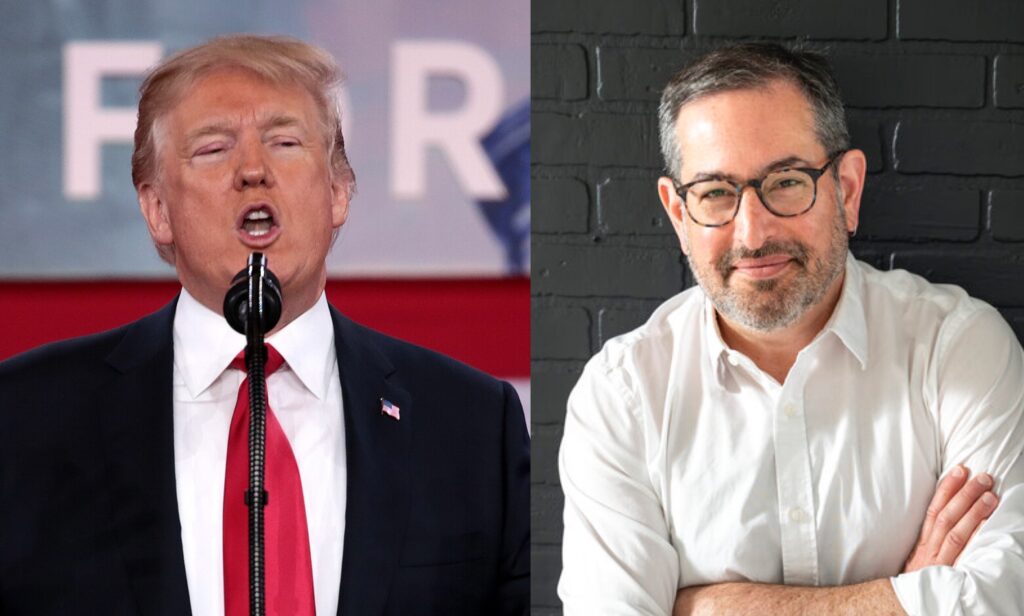The Republican National Convention kicks off this week in Cleveland, Ohio and among the crowd clamouring to see Donald Trump will be one man who crossed the Atlantic to be there: Nigel Farage.
The former head of the UK Independence Party (UKIP) helped lead Britain’s vote to leave the European Union (EU) and is famous for saying last year “I haven’t got a clue whether climate change is being driven by carbon-dioxide emissions.”
But he’s made the trip this week to deliver a message to Republicans that the UK’s vote to leave the EU, or ‘Brexit’, holds lessons for America.
This isn’t the first time Farage and other Brexit campaigners have visited the US to talk shop. Exactly one year ago Farage delivered a speech to the Heritage Foundation in Washington D.C. where he made the case for the US to support Brexit.
Prior to that in March 2015 ahead of the UK general election, the Heritage Foundation hosted former environment secretary and climate science denier Owen Paterson who also called for the US to back Britain’s “new global role” outside of the EU.
And while it may be easy to laugh off as ridiculous Lord Christopher Monckton’s calls for Texas to ‘Texit’, under the surface there appears to be a growing alliance between the Koch- and Exxon-funded American think tanks and Britain’s prominent pro-Brexit politicians and organisations.
This alliance is one which holds in common a disdain for State intervention and top down regulations, along with a uniform dismissal of climate science.
In fact, the US think tanks linked to Brexit campaigners can be found in the ‘Web of Denial’ denounced by a group of 19 Democratic Senators last week. This Web of Denial has helped to spawn and support climate science denial in the UK.
As mapping by DeSmog UK shows, there are deep-rooted connections between those who campaigned for Brexit (and now form part of the new government) and those who deny the science on climate change.
‘Sweet Smell of Freedom’
When the news came that Britain had voted to leave the EU, Charles G. Koch Foundation senior program officer, Adam Kissel, took to Twitter in true American fashion: “Give me a B! Give me an R! Give me an Exit! 52-48 Brexit!”
The Cato Institute’s senior fellow Doug Bandow Tweeted that Brexit was a “huge win … So much for the next superstate!”
And Luke Higemann, chief executive of Americans for Prosperity, Tweeted: “Ahhh, nothing like the sweet, sweet smell of freedom wafting over from across the pond this morning!”
Two weeks ahead of the Brexit vote, the UK’s premier free market think tank with links to oil, tobacco and climate denial, the Institute of Economic Affairs (IEA), confidently launched the first annual Europe Liberty Forum with the Atlas Network – a group which has received Koch and Exxon funding and brings together over 400 think tanks in more than 80 countries promoting individual liberty and free market ideals. Many of its members have pushed climate science denial and campaigned against legislation to limit greenhouse gas emissions.
The aim of the new forum is to be a place for those who support “free people and free markets” to share “best practices and discussion of the policy battles that lie ahead.” The keynote speaker at the event’s gala dinner was Johan Norberg, a senior fellow at the Cato Institute.
And just one month earlier, in May, Arron Banks, the millionaire UKIP backer and founder of Leave.EU, was making the rounds in Washington D.C. and New York with Labour’s Kate Hoey to campaign for Brexit.
Speaking to more than a dozen policy experts at the Cato Institute, Banks is reported as stating there would be economic pain in the event of the UK leaving the EU, but that it was a price worth paying for independence.
Banks and Hoey also met with representatives of the Atlantic Council, American Foreign Policy Council and the Heritage Foundation, along with the US Treasury Department and the Department of State in an effort to drum up support.
The success of the trip, paid for by Banks and PR firm Goddard Gunster hired by Leave.EU, is difficult to discern, however.
Alex Nowrasteh, an immigration specialist at Cato, told Bloomberg: “It was the most unimpressive and unconvincing argument for a political case I’ve seen in years. He appealed to every type of argument that’s unconvincing: naked nationalism, nativism, anti-free-market, anti-capitalism ideas.”
“There was a solid intellectual case to be made for Brexit,” he said, “but that was not it.”
Meanwhile, others at Cato have certainly found inspiration in Brexit. Writing in an op-ed for Forbes, Bandow argues: “Americans also should take note of Brexit … Perhaps a similar style campaign could be launched in the U.S.”
“A movement against turning ever more money and authority over to a distant capital largely disconnected from the people it so enthusiastically attempts to rule. We could call it ‘Amexit’.”
Heritage Backs Brexit
But looking back, it’s the Heritage Foundation that’s been most ardently pushing for Brexit – even claiming credit for the successful vote to leave. Since 2005 when the Thatcher Center for Freedom was set up by the think tank at Margaret Thatcher’s recommendation, the group claims it has been calling for Brexit.
As Luke Coffey, director of Heritage’s Allison Center for Foreign Policy, boasted after the vote: “The Heritage Foundation has published dozens of policy papers and opinion pieces on why the U.K. should leave the EU and we have worked with the leaders of the Brexit campaign from the very beginning.”
“The Heritage Foundation can be very proud of the role it has played in helping achieve this outcome.”
Free Trade Plans
Upon hearing that Liam Fox was appointed as the UK’s International Trade Secretary on July 14, climate sceptic UKIP MEP Roger Helmer tweeted: “Liam Fox has good contacts in the USA. It’s quite possible that the UK will have a US free trade deal before the EU does.”
This is something the Heritage Foundation has been calling for over the past few years.
Perhaps one set of contacts Helmer was hinting at was the American Legislative Exchange Council (ALEC), known for lobbying against climate action, taking funding from the Koch brothers, and counting ExxonMobil among its members (ALEC once flew Andrea Leadsom, the new pro-Brexit Environment Secretary, to attend “exchange meetings”).
Up until 2011, Fox was the founder and UK chairman of Atlantic Bridge – a think tank which brought together right-wing libertarians from both sides of the pond. Before the organisation was dissolved following a Charity Commission investigation, Atlantic Bridge held conferences sponsored by the Heritage Foundation and had a five year partnership with ALEC.
The Atlantic Bridge membership also included the likes of Michael Gove, Boris Johnson, and Michael Hintze – all key players present throughout the Brexit campaign. In the US, Republican senator and Tea Partier, Jim DeMint, sat on its advisory council. DeMint is now the president of the Heritage Foundation.
Currently, the free trade deal being negotiated between the US and EU is the Transatlantic Trade and Investment Partnership (TTIP) agreement. However, in Europe there has been strong and consistent public outcry against it.
Amongst the criticisms is that the deal is disconnected from the urgency of climate change and the Paris Agreement, and that it will allow for lax regulations, loopholes, and an easier flow of trade in fossil fuels, particularly shale gas from the US.
As a result, during the Brexit campaign some on the Left argued Brexit would allow the UK to remove itself from the controversial TTIP deal.
But as Nick Dearden of Global Justice Now recently warned in the Guardian: “It was a fallacy that withdrawing from the EU would save us from the corporate power grab symbolised by TTIP … our whole trade strategy could be handed over to big finance, egged on by true believers in the free market within the Tory party.”
The new British cabinet now includes several figures known to have a long history of working within the neoliberal Brexit climate denier web.
The UK’s new Department for International Trade is headed up by Fox meanwhile the climate science denying David Davis is eager in his role as ‘Brexit minister’ to get started on negotiating bilateral trade deals. You also can’t forget Boris Johnson, Britain’s new Foreign Secretary.
In a post-Brexit world it’s difficult to see how the relationship between the climate science denying politicians and organisations on either side of the Atlantic can become anything other than increasingly galvanised.
Subscribe to our newsletter
Stay up to date with DeSmog news and alerts







